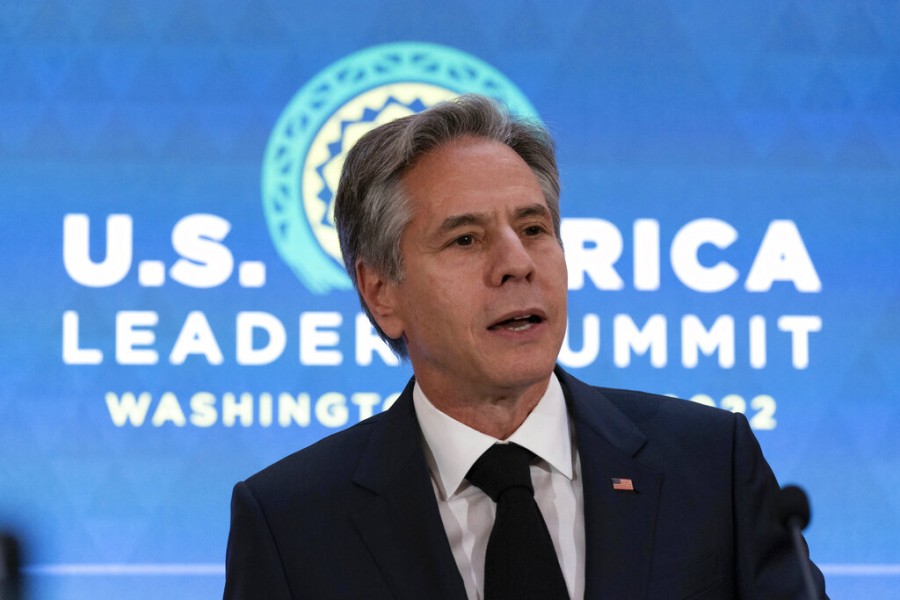With dozens of African leaders descending on Washington this week, the Biden administration is offering a not-so-subtle pitch in its economic competition with China on the continent: The US offers a better option to African partners.
Ahead of Tuesday’s start of the three-day US-Africa Leaders Summit, Deputy Commerce Secretary Don Graves acknowledged that the U.S. has fallen behind as China has surged past American foreign direct investment in Africa but argued that the U.S. remains the “partner of choice” in Africa, reports AP.
“We took our eye off the ball so to speak, and US investors and companies are having to play catch up,” Graves said at an event hosted by the news outlet Semafor. He added, “We’re bringing the best technologies and innovations, the highest standards.... The US helps to build capacity in our partner countries as opposed to exploiting those countries.”
Heads of states from 49 African nations and the African Union have been invited to take part in the summit that has been billed as an opportunity for President Joe Biden’s administration to re-engage the continent’s leaders.
The continent, whose leaders often feel they've been given short shrift by leading economies, remains crucial to global powers because of its rapidly growing population, significant natural resources, and a sizable voting bloc in the United Nations. Africa remains of great strategic importance as the U.S. recalibrates its foreign policy with greater focus on China — what the Biden administration sees as the United States' most significant economic and military adversary.
Even before the summit officially began, the White House announced Biden's support for the African Union becoming a permanent member of the Group of 20 nations and that it had appointed Johnnie Carson, a well-regarded veteran diplomat, to serve as point person for implementing initiatives that come out of the summit.
White House national security adviser Jake Sullivan on Monday also said that the administration would commit to spending $55 billion in Africa over the the next three years on “a wide range of sectors to tackle the core challenges of our time.”
“If you compare what the United States is committing over the next three years to what any other country is committing, I think we stack up extremely favorably,” Sullivan said.
And while the administration has tried to minimize concerns about China’s deepening presence on the continent as a driving force at this week's talks, Beijing’s shadow over the biggest international gathering in Washington since the start of the pandemic nearly three years ago looms large.
Without direct mention of China, Deputy Treasury Secretary Wally Adeyemo on Monday sounded the alarm about petering private investment in middle- and low-income countries, particularly in Africa. The infrastructure finance gap, or money needed for essential projects like lighting homes and businesses, responding to the COVID pandemic and to making communities resilient against extreme weather, sits at $68 billion to $108 billion per year, Adeyemo said.
At the same time, Adeyemo lamented that huge amounts of private capital among the wealthy nations around the globe remains untapped.
“There is a clear disconnect between the large amount of available private sector capital and the urgent need to fund critical infrastructure projects in Africa and elsewhere. The question for us is: how do we connect this massive supply of savings with high-quality infrastructure projects in Africa?” Adeyemo said at the U.S. Trade and Development Agency.
Trade between the U.S. and sub-Saharan Africa was $44.9 billion last year, a 22% increase from 2019. But foreign direct investment into the region fell by 5.3% to $30.31 billion in 2021. Trade between Africa and China last year surged to $254 billion last year, up about 35% as Chinese exports increased on the continent.
The Biden administration, as it addresses criticism that Africa has remained an afterthought in U.S. foreign policy, has taken veiled jabs at China.


